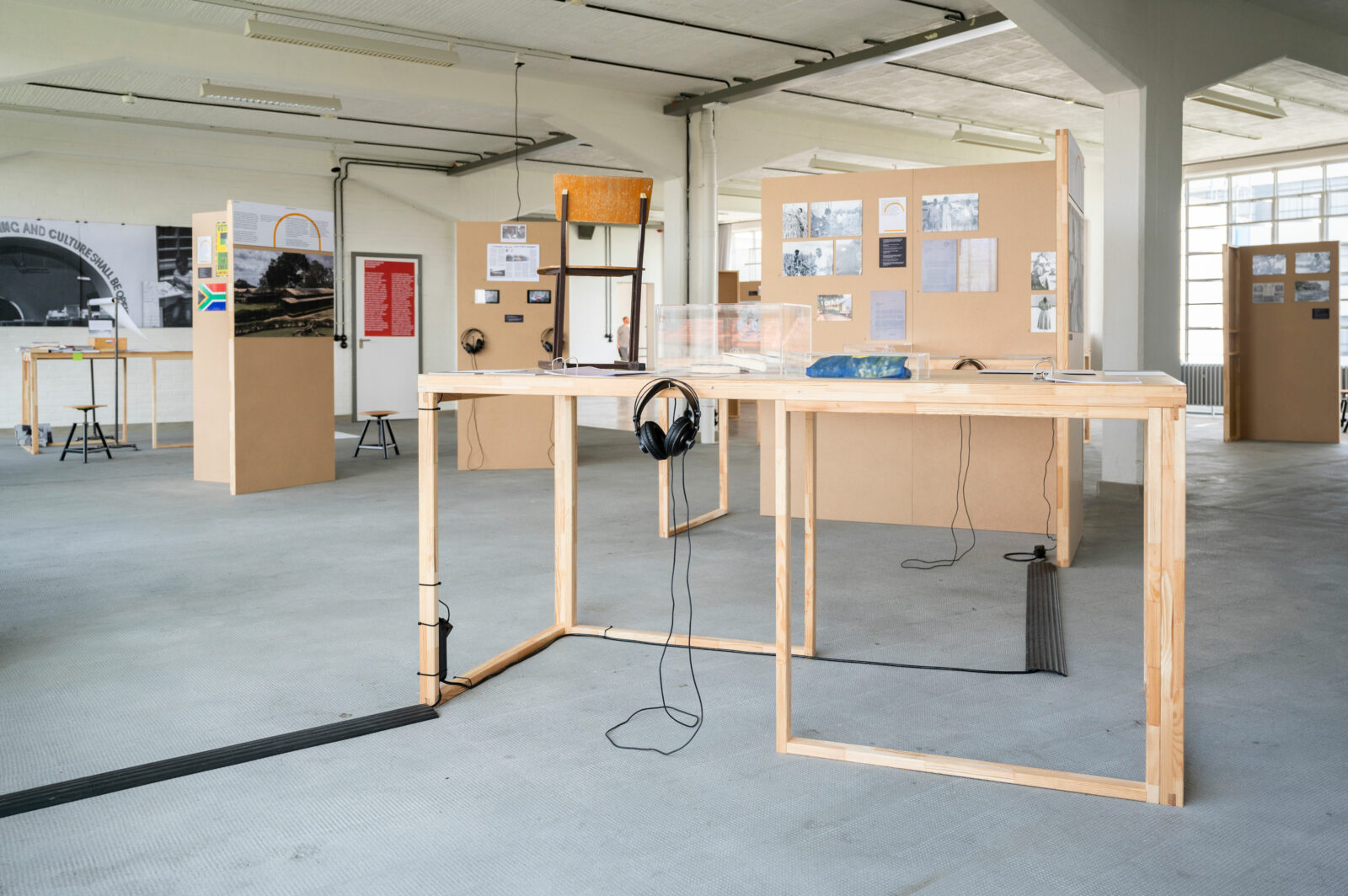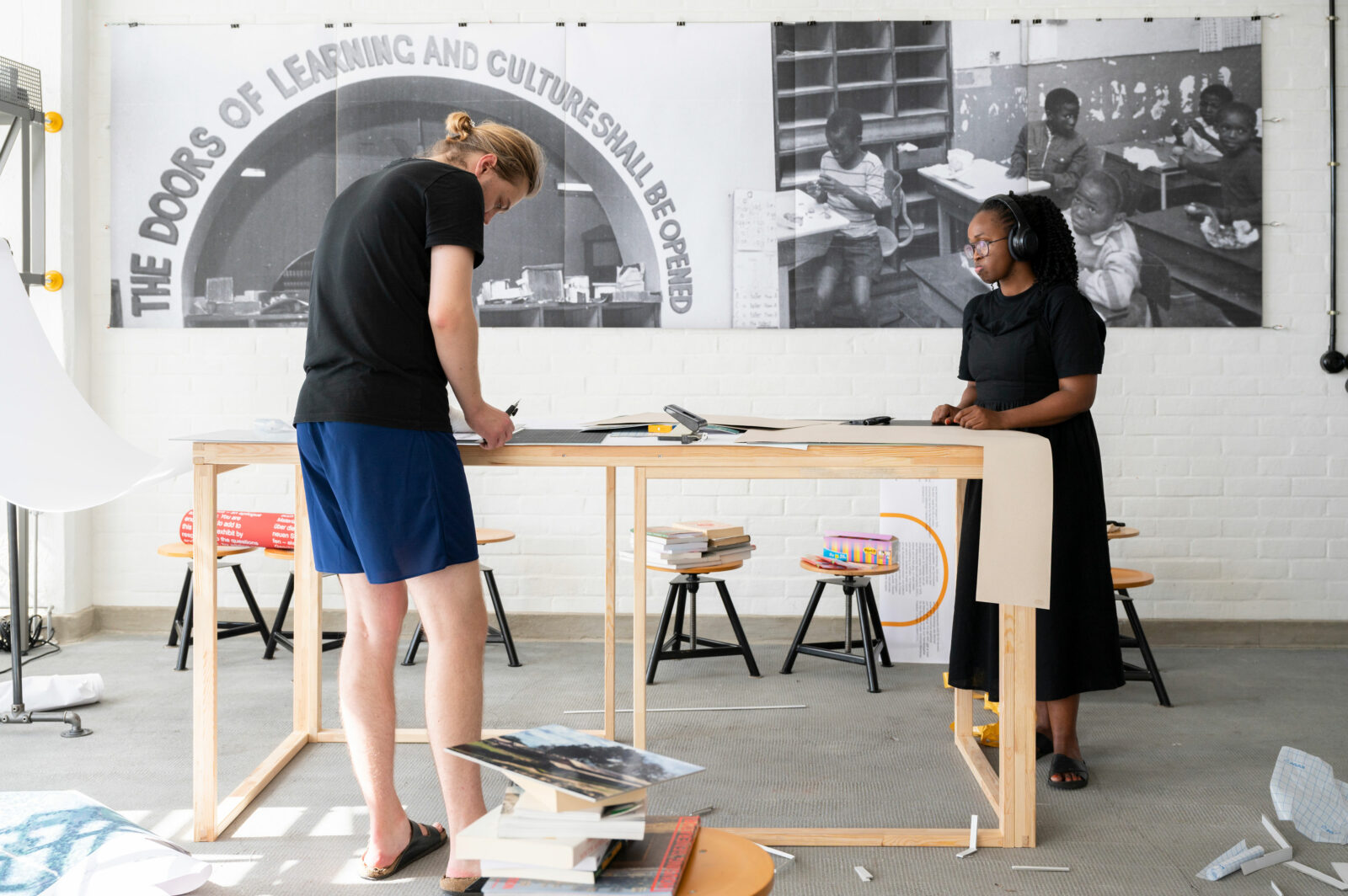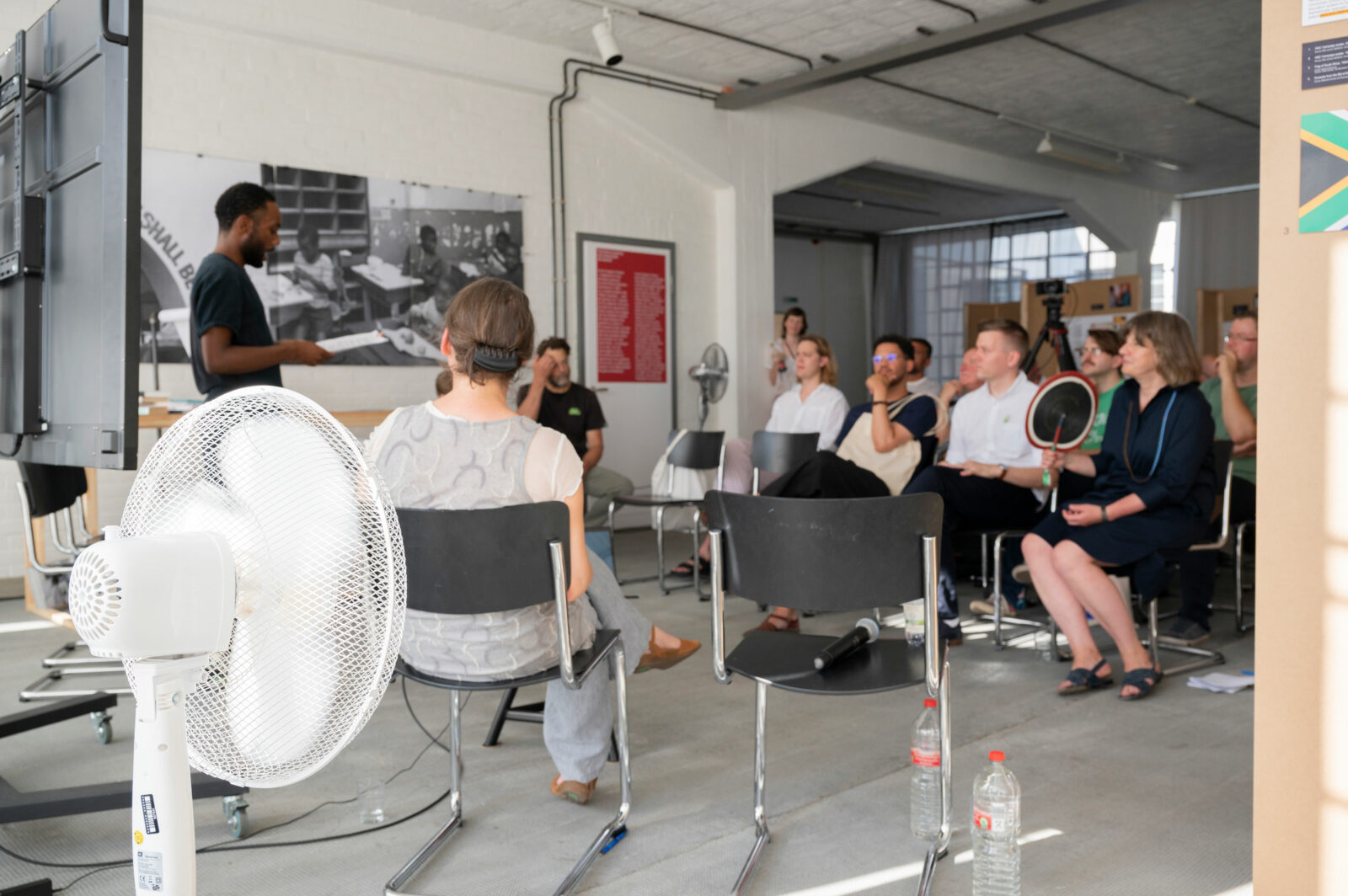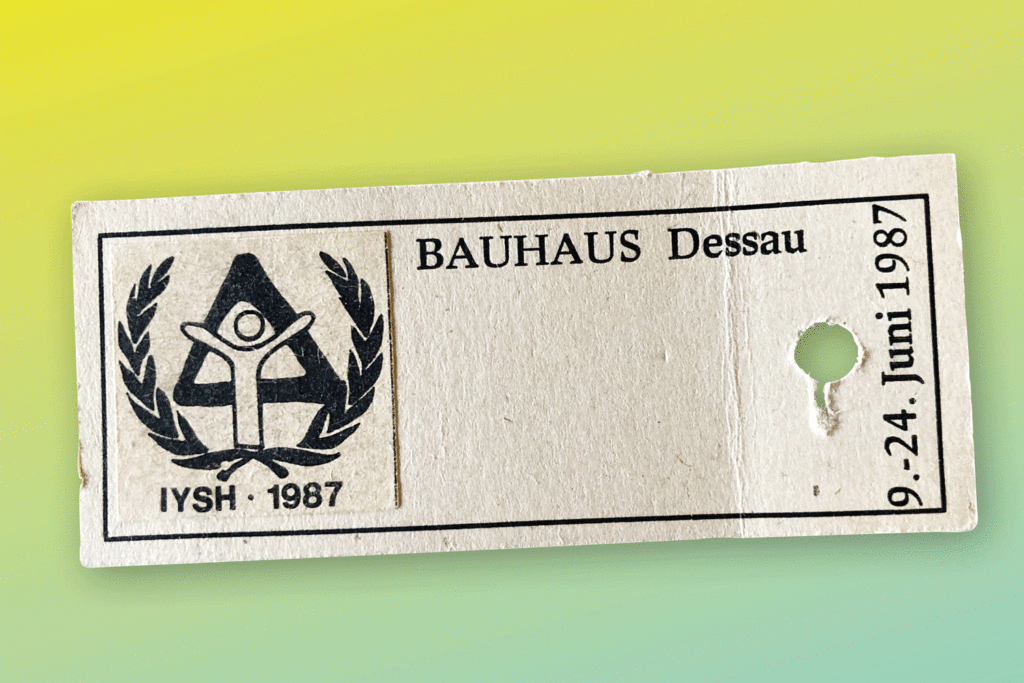Doors of Learning: Microcosms of a Future South Africa
Exhibition
4 Aug 2022 – 15 Jan 2023
Bauhaus Building
The apartheid regime resulted in a dramatic crisis of education in South Africa. With international support and solidarity, African National Congress (ANC) education and development centres sprung up in rural Tanzania in response. Among them were the SOMAFCO and Dakawa centres built in the late 1970s and 80s. They offered people fleeing the brutal regime of racial segregation innovative spaces of refuge and development. At the same time, they were unique places for cross-national encounters between East and West.
The starting point for the Bauhaus Lab 2022 is a UN-HABITAT conference organised by the “Bauakademie” of the GDR in 1988 at the Bauhaus Dessau (at that time operating as “Zentrum für Gestaltung”), where a prefabricated construction system developed by GDR architects and applied in the ANC centres in Tanzania was showcased. The story of this international encounter challenges previous Cold War historiographies in relation to the global engagement of the Eastern Bloc, especially with regard to their role within independence and liberation movements. Through the case studies of SOMAFCO and Dakawa, the Bauhaus Lab 2022 explores the interconnections of the GDR’s “global socialism” with decolonial education movements and social transformations in Africa in the late years of the Cold War.
The results of the Bauhaus Lab will also be summarised and presented in an exhibition in the Bauhaus Building in 2022. The aim of the show is to reflect on the education and development centres as a radical experiment in learning and living, as well as their spatial and design implementation in the context of the efforts to create a future democratic South Africa free of racism. The focus is on the following questions: What were the immediate educational needs in those temporary learning environments? What alternative ideas, programmes and solutions have been developed in Tanzania? How were the educational priorities implemented spatially and creatively by the ANC together with international actors? And what was everyday life like for the people who lived there?
Doors of Learning: Microcosms of a Future South Africa is a collective exhibition curated by a multidisciplinary and international group of artists, curators, historians and researchers. The 2022 edition of the Bauhaus Lab was made up of: Igor Bloch, Joyce Lam, Essi Lamberg, Nokubekezela Mchunu, Esther Mbibo, Michalina Musielak, Lucas Rehnman and Jordan Rowe, supported by Regina Bittner and Philipp Sack (Academy of the Bauhaus Dessau Foundation).




Symposium
4 Aug 2022
Together with international guests, the Bauhaus Lab participants will discuss questions about the role of education in the anti-apartheid movement in South Africa at the panel discussion as part of the opening of the exhibition “Doors of Learning: Microcosms of a Future South Africa”, which is the result of three months of research by the Bauhaus Lab. In addition, they will ask to what extent the educational centres in Tanzania, which were realised with international support, can be interesting examples of an alternative historiography of a global socialism. Furthermore, the discussants will deal with the question of the legacy of these international educational experiments based on solidarity.
Invited are: Nolan Oswald Dennis (Johannesburg), Ola Uduku (Liverpool), Jakob Marcks (Prague), Anja Schade (Hildesheim) and Hannah Le Roux (Johannesburg).

